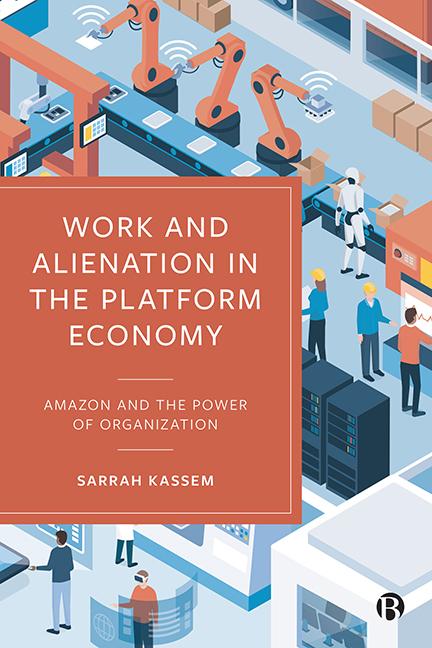10 - Alienation across Amazon and the Platform Economy
Published online by Cambridge University Press: 18 January 2024
Summary
When looking at the two Amazon platforms, it appears that the platform economy may contain some peculiarities, but ultimately (re)produces current capitalist trends towards algorithmic management of labor processes, hypertaylorization of work, fragmentation of the workforce and precarization of the labor market. The Amazon warehouses illustrate, on the one hand, the historical continuation of traditional time-wage laboring, in which the workforce is assembled in the same physical space within the platform economy, sharing similarities to other platforms such as Facebook and Google. The case of MTurk, on the other hand, sheds light on a different historical continuation, namely of piecework adopted by capital into the new dimension of the digital. While even time-wage laboring platforms such as Facebook and Google are known to contract labor and depend on ghost work of entities such as MTurk, the MTurk case is meant, first and foremost, to give insights into the significance of laboring remotely through the web and also of piecework. The gig economy is founded precisely on the latter, constituting an essential part of the platform economy. This chapter compares the two Amazon workforces first in terms of their alienation, before, in the next chapter, looking at their agency. Rather than presenting the platform economy dichotomously as consisting of either location-based time-wage labor or web-based piece-wage labor, this chapter contextualizes the cases in the larger platform economy. It, therefore, also includes location-based gig platforms like Uber.
Alienation from the labor activity
All platforms, regardless of their function, are characterized by their mediating nature by which they represent capital. While the infrastructure of the Internet is central to this function, capital–labor relations, and the composition of labor, are always bound to material contexts in which they are located. These reflect to differing degrees wider racialized and gendered labor markets and are not abstract to them. While Amazon mediates e-commerce through the circulation of commodities for which it relies on manual labor, MTurk mediates outsourced labor power for digital ‘human intelligence’ microtasks. Amazon’s role as the platform mediator is fundamentally different in this case, however, because of the nature of the work.
- Type
- Chapter
- Information
- Work and Alienation in the Platform EconomyAmazon and the Power of Organization, pp. 136 - 148Publisher: Bristol University PressPrint publication year: 2023



